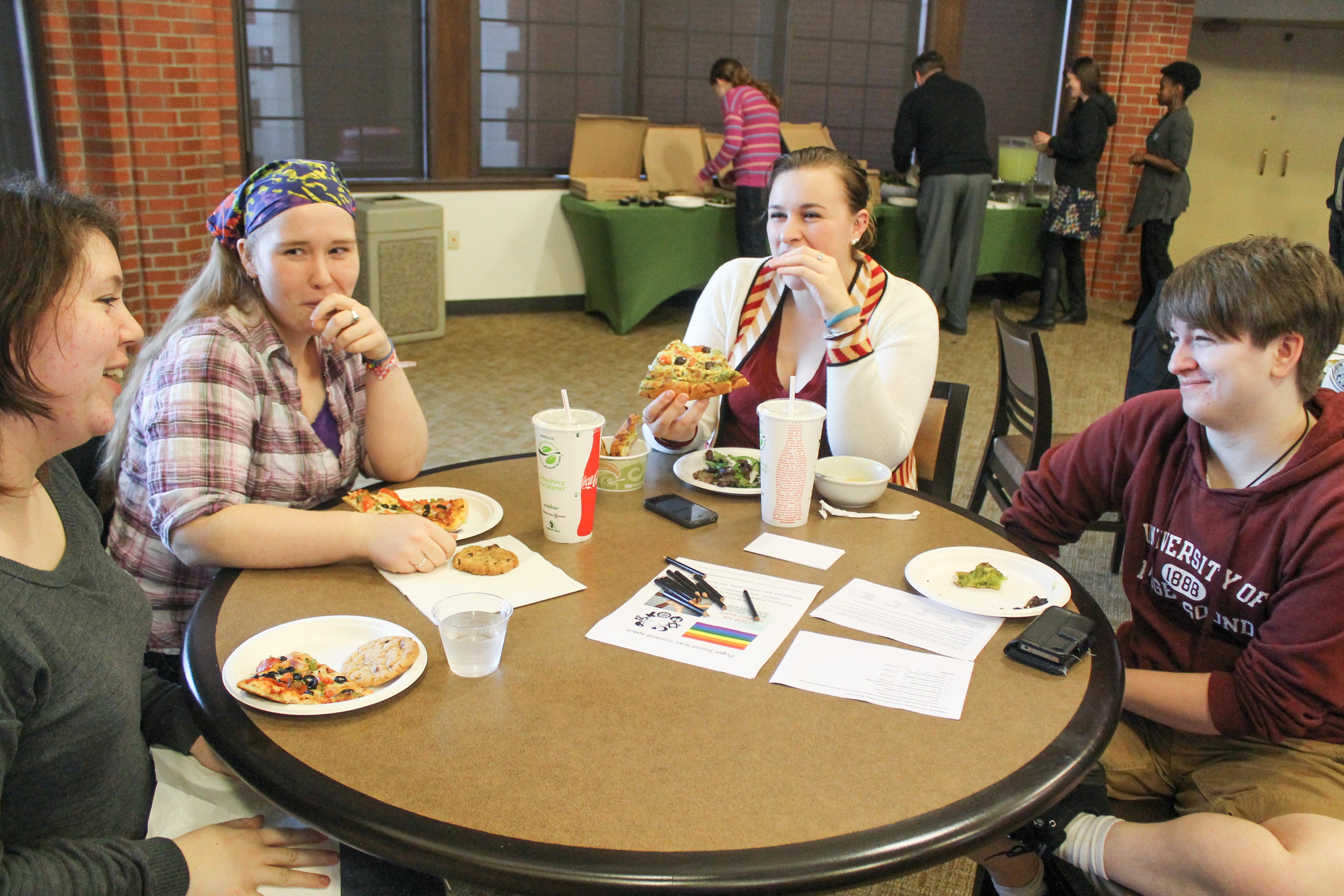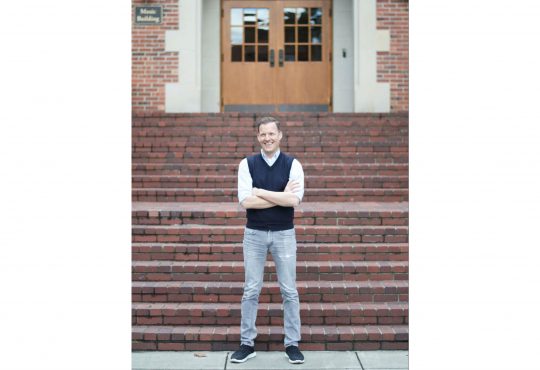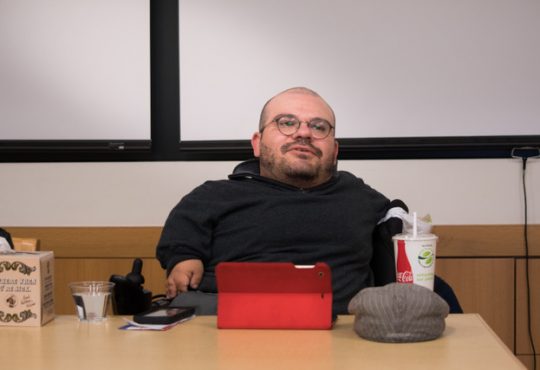Engaging the trans experience: students gather to discuss making campus a more supportive and inclusive space

What does the word “transgender” mean? A lot of people cannot answer that question. That is why, on Thursday, March 6, Puget Sound students gathered in the Rotunda to find out.
Students sat at the round tables pushed into the middle of the room, with a pile of papers on each one. There was a vocabulary guide for the discussion, defining words like “cisgender,” “oppression” and “gender identity.” Next to it were posters that read, “Puget Sound is an inclusive space.” Below it were stock images of a rainbow flag, religious symbols surrounding the Earth, a text bubble that said “I stand for disability rights” and images of people’s arms locked together, all of different sizes and colors. As students poured in they helped themselves to pizza, reaching into boxes brought up from the Cellar.
Resident Director Ayanna Bledsoe addressed the room. She explained that the event was a response to instances of hatred against the LGBTQ community on campus last semester. “We’d like you to open your minds up to new ideas,” Bledsoe said.
With that, she introduced Dr. Amy Ryken, a professor in Puget Sound’s School of Education. Ryken quickly clarified that she liked to be called “Amy.”
She held up a map of the United States, areas without laws protecting the LGBTQ community shown in a stark white. Ryken discussed the struggles of the LGBTQ community, particularly those of transgendered individuals, saying, “I see women on TV. I see what women are supposed to look like, and that tells me: Amy, you’re a freak.”
A video played on the projector screen, short clips of a documentary called Trans: The Movie.
It featured a young trans girl of about 7 or 8 years old who was in agony when her parents would not let her wear dresses, a young man who told his partner, on camera, that he was transgendered and a middle aged trans woman with her partner. The little girl, when asked what the difference was between boys and girls, replied, “A boy wears lame clothes and a girl wears good clothes.” The audience was mostly somber while watching the video, but after an overly long and particularly cheesy extended shot of the two middle aged women, half the room burst out laughing.
After the video, discussion questions popped up on the screen and the audience got into small groups to discuss such questions as “How can you act to produce a more inclusive space and be an ally?” One table with two Resident Assistants, sophomores Samantha Coates and Kimberly Webber, discussed how the residence life community could better support their residents now that their knowledge of the transgender experience had been expanded. Ryken quickly sat down and joined in the conversation, nodding her head and provoking the students with questions.
She lamented the University’s fear of being politically incorrect and offensive, saying, “I call it Northwest Nice. It’s Puget Sound Nice. People don’t want to say what they feel.” This, she said, was why events like these are so important.
Later, the discussion was expanded from small groups to the whole room. Students went back and forth on why black transgendered women seem victim to the most violence and how they could offer a more supportive community to transgendered people here on campus. One student brought up the issue that there are many bathrooms on campus, but only five are gender-neutral. Another student countered, saying “We can just take [the signs] off tomorrow, right?”
So what does “transgender” mean?
Transgender: those whose gender identity and/or expression does not or is not perceived to match their assigned birth sex.
For more information, contact Multicultural Student Services. You can also check out Trans: The Movie from the library.



